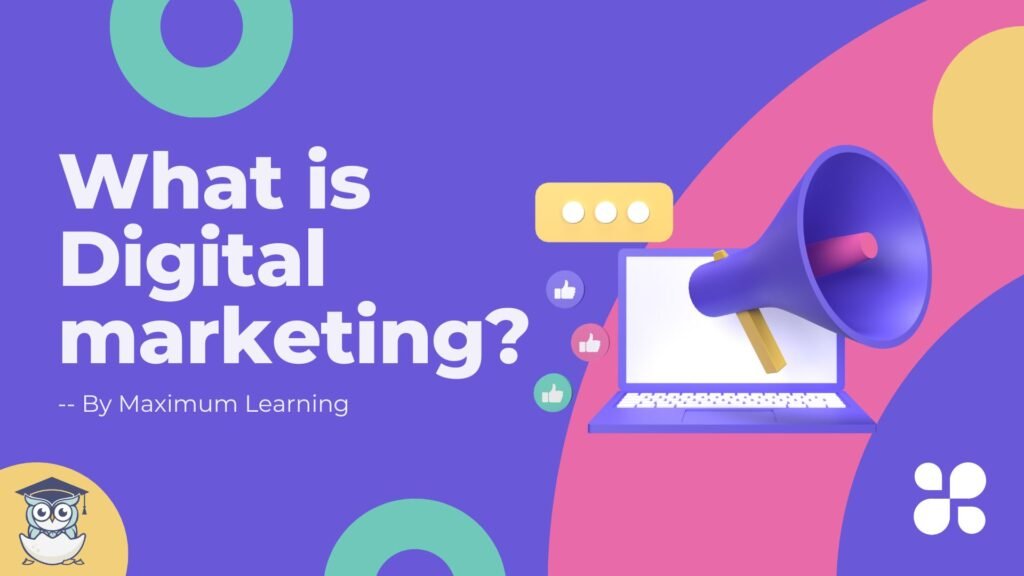In the dynamic landscape of digital marketing, one tool has emerged as a powerhouse for businesses seeking to elevate their online presence – blogging. It’s not just about crafting words on a page; it’s a strategic key component that can exponentially increase leads and attract a surge of links to your website. Did you know that businesses that harness the potential of blogging experience a staggering 67% increase in leads and up to 97% more links to their websites?
Blogging, when done right, is more than just content creation; it’s a pathway to engage, inform, and convert visitors into loyal customers. Through well-written and insightful blogs, businesses can offer a wealth of information about their products and services, building a bridge of understanding between them and their audience.
An effective digital marketing strategy orbits around a business’s website, and the more visitors you attract, the higher your conversion rates soar.
Enter Webflow, a platform designed to empower your blogging journey. With an array of customizable blog templates, Webflow allows you to tailor your content to your brand’s unique voice. It’s more than just creating blogs; it’s about creating an immersive experience for your audience.
Webflow not only provides creative freedom but also serves as a seamless bridge between your blog and social media platforms. Integrating links to your blogs on social media not only drives traffic but also enhances your leads and conversion rates. Statistics reveal that 23% of social media posts now include a link to a blog post, emphasizing the symbiotic relationship between social media and blogging.
Blogging is a direct line to your prospective customers. It’s where they seek in-depth knowledge about your offerings, and engaging content is the key to building that essential connection. Regularly posting blogs doesn’t just boost engagement; it helps you address user queries, fine-tune your keywords, and ensure your content aligns with what your audience is actively searching for.
Stay with us as we dive deeper into the realm of blogging and explore how Webflow can be your ally in unlocking digital success. Discover the strategies, insights, and practical steps to harness the full potential of blogging for your business. It’s more than a journey; it’s a roadmap to digital triumph.
What is content creation?
Content creation refers to the process of generating and producing material for various mediums, with the goal of providing valuable and relevant information to a specific audience. This content can take various forms, including written articles, blog posts, videos, podcasts, infographics, social media posts, and more. The purpose of content creation is to engage, inform, entertain, or inspire a target audience, ultimately serving a particular purpose or goal set by the creator or the organization.
Key elements of content creation include:
Target Audience: Understanding the intended audience is crucial for creating content that resonates. The content should address their needs, interests, and preferences.
Purpose or Goal: Content creation typically serves a specific purpose, such as educating the audience, building brand awareness, driving traffic to a website, generating leads, or promoting a product or service.
Medium or Format: Content can take various forms depending on the platform and the preferences of the target audience. This could include written articles, images, videos, podcasts, or a combination of different formats.
Research and Planning: Effective content creation involves research to ensure accuracy and relevance. Planning the content strategy, including topics, keywords, and a publishing schedule, is essential for consistency and success.
Creativity and Originality: Creating compelling and original content is crucial for capturing the audience’s attention and standing out in a crowded digital space.
Consistency: Regularly producing and publishing content helps maintain audience engagement and builds trust over time. Consistency is key to establishing a strong online presence.
Optimization: For online content, optimization for search engines (SEO) is important to enhance visibility and reach a broader audience. This includes the strategic use of keywords, meta tags, and other SEO best practices.
Adaptability: The ability to adapt content to different platforms and formats is important in reaching a diverse audience. Content creators may need to tailor their approach to websites, social media, email marketing, and other channels.
Overall, content creation is a dynamic and evolving process that requires a combination of creativity, strategic thinking, and a deep understanding of the target audience. It plays a crucial role in digital marketing, brand building, and establishing a meaningful connection with an audience in today’s information-driven era.
Why is creating content important?
Creating content is crucial for several reasons, and its importance has only grown in the digital age. Here are some key reasons why content creation is essential:
Audience Engagement:
Content provides a means to engage with your audience. Whether it’s through blog posts, videos, or social media updates, creating content allows you to connect with your audience on a personal level.
Brand Building:
Consistent and high-quality content helps build and reinforce your brand identity. It allows you to showcase your values, expertise, and unique selling propositions, fostering a positive perception of your brand.
Educating and Informing:
Content serves as a valuable tool for educating your audience. By providing informative and relevant content, you position yourself as an authority in your industry, earning the trust of your audience.
Search Engine Optimization (SEO):
Search engines prioritize fresh, relevant, and quality content. Regularly creating and publishing content that aligns with your target keywords can improve your website’s search engine rankings, making it more discoverable by potential customers.
Lead Generation:
Content marketing is an effective strategy for generating leads. By offering valuable content, such as ebooks, whitepapers, or webinars, you can capture the interest of potential customers and gather their contact information.
Social Media Presence:
Social media platforms thrive on content. Regularly sharing content on social media not only keeps your audience engaged but also extends your reach as users share, comment, and interact with your posts.
Sales and Conversion:
Content plays a crucial role in the sales funnel. Informative content helps build awareness, while persuasive content can guide potential customers through the decision-making process, ultimately leading to conversions.
Building Trust and Credibility:
Trust is a fundamental aspect of any successful business. Creating content that is reliable, informative, and transparent helps establish trust with your audience, fostering long-term relationships.
Adaptability to Various Formats:
Content creation allows for versatility in reaching your audience. Whether it’s through written articles, videos, podcasts, or infographics, adapting your content to various formats ensures you can connect with a diverse audience.
Keeping Up with Competitors:
In today’s competitive business landscape, having an online presence and regularly producing content is often the norm. Creating valuable content allows you to stay competitive, ensuring that your brand remains visible and relevant.
Feedback and Interaction:
Content creation encourages interaction with your audience. Comments, shares, and feedback provide valuable insights into your audience’s preferences and allow you to adapt your strategies accordingly.
The Role of Blogging in Business
Blogging has evolved from a personal online journaling platform to a critical component of a business’s digital strategy. It serves as a dynamic channel to connect with the target audience, establish industry expertise, and foster brand loyalty. Through regular, high-quality blog posts, businesses can create a narrative that resonates with their audience, driving traffic to their websites and social media platforms. Let’s delve deeper into the multifaceted aspects of blogging and understand how it has become an indispensable tool for businesses looking to thrive in the online sphere.
1. Connecting with the Target Audience:
Blogging provides businesses with a direct and personal means of connecting with their target audience. Through the creation of relatable and relevant content, businesses can address the needs, concerns, and interests of their audience. Unlike traditional advertising, which is often one-sided, blogging encourages a two-way conversation. Comments, shares, and feedback on blog posts enable businesses to engage with their audience in real time, fostering a sense of community and trust.
2. Establishing Industry Expertise:
A well-crafted blog serves as a platform for businesses to showcase their industry knowledge and expertise. By consistently delivering high-quality and insightful content, businesses position themselves as thought leaders in their respective fields. This not only enhances their credibility but also distinguishes them from competitors. Through in-depth analysis, expert opinions, and industry trends, businesses can demonstrate a deep understanding of their niche, establishing themselves as go-to sources for information.
3. Fostering Brand Loyalty:
Regular and meaningful interaction with the audience through blog posts helps in building a stronger connection and loyalty. When customers perceive a brand as a valuable source of information that consistently adds value to their lives, they are more likely to remain loyal. Blogs allow businesses to humanize their brand, telling stories, sharing experiences, and creating an emotional connection with the audience. This emotional resonance is a powerful driver of brand loyalty, turning customers into brand advocates.
4. Creating a Compelling Narrative:
Blogs enable businesses to craft and control their narrative. Through a series of well-thought-out blog posts, a business can tell its story, from its inception to its current endeavors and future aspirations. This narrative helps in shaping the brand’s identity and values, creating a cohesive and compelling story that resonates with the audience. A compelling narrative adds depth to the brand, making it more relatable and memorable.
5. Driving Traffic to Websites and Social Media Platforms:
One of the tangible benefits of effective blogging is its ability to drive traffic. When businesses consistently publish high-quality content, it not only attracts the target audience but also improves search engine rankings. Increased visibility on search engine results pages (SERPs) leads to more organic traffic. Moreover, blog content serves as a valuable material for social media sharing, amplifying the reach and engagement on platforms like Facebook, Twitter, and LinkedIn.
The SEO Advantage
Search Engine Optimization is the practice of optimizing a website to rank higher on search engine results pages (SERPs). Blogging is a potent tool for SEO, contributing to increased organic traffic and improved search visibility. Here’s how content creation and SEO work hand-in-hand:
1. Quality Content is Key
Engaging, informative, and well-researched content not only captivates your audience but also attracts search engines. Google’s algorithms prioritize valuable content, rewarding it with higher search rankings. When you consistently produce high-quality blog posts, you signal to search engines that your website is a reliable source of information, thereby boosting your SEO efforts.
2. Strategic Keyword Integration
Identifying and incorporating relevant keywords into your blog content is crucial for SEO success. These keywords should align with your business, products, and services. Careful keyword research allows you to understand what your target audience is searching for, helping you tailor your content to meet their needs. However, it’s essential to avoid keyword stuffing, as this can negatively impact user experience and search engine rankings.
3. Internal and External Linking
Effective linking is a fundamental aspect of SEO. By including internal links (links to other pages within your website) and external links (links to reputable external sources), you enhance the credibility and authority of your content. Search engines view well-linked content as more valuable, contributing to higher rankings.
4. Regular Updates and Fresh Content
Search engines favor websites that regularly update their content. By maintaining an active blog, you signal to search engines that your site is current and relevant. This consistency can positively impact your SEO efforts and contribute to improved rankings over time.
In the online business, mastering the art of blogging is essential. By creating compelling, SEO-friendly content, businesses can establish themselves as industry leaders, attract a loyal audience, and climb the ranks on search engine results pages. Remember, it’s not just about writing for search engines; it’s about providing value to your audience while strategically optimizing for better visibility. Embrace the power of blogging, and watch your business flourish in the digital arena.




